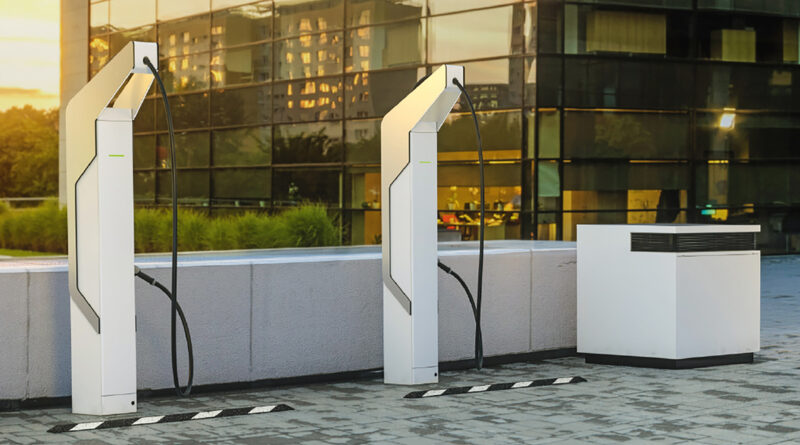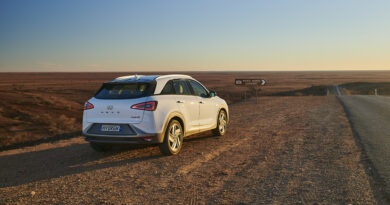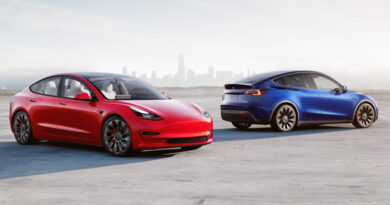EV tax is like adding 50 percent to the price of petrol…
Imagine if a politician announced a new tax that increased the price of petrol by 50 percent. The screaming ferocity of the storm of protest that followed would make recent objections to plans by state governments to introduce EV-only road-use taxes seem like a pleasant breeze.
In all I’ve read on the EV tax plans of South Australia and Victoria there’s been little discussion of how much they would increase the cost of driving electric. So I did some quick calculations… and the answers made me even more angry than I already was.
For the driver of a typical EV, these taxes are the equivalent of adding close to 50 percent to the price of a litre of unleaded. Here’s how I came up with this appalling number…
The last EV I tested was a Nissan Leaf e+, which used an average of 17.5kWh/100km. From EV Central reader feedback, I know this is a pretty typical rate of real-world energy consumption for EVs at the more affordable end of the scale, the Tesla Model 3, for example. Some quick research then established that a kWh costs around 30 cents for many Australians.
Using this consumption and price data, a little calculator tapping yields a per-kilometre energy cost of 5.25 cents for a fairly typical EV.
Of the three states which plan to introduce or are considering a special EV tax only Victoria has revealed the number it’s thinking of. The 2.5 cents per kilometre charge proposed by Treasurer Tim Pallas doesn’t sound like much, but it represents a per-kilometre price hike of 48 percent.
For EV drivers using less than 17.5kWh/100km, or paying less than 30 cents per kWh for their power, or both, the increase is likely to exceed 50 percent.
South Australia was the first to go public with an EV tax. Though details of the two-part EV tax announced by Treasurer Rob Lucas are skimpy, its impact is going to be even heavier than Victoria’s.
If you take the $1 million South Australia aim to raise through the new tax, then divide it by a rough estimate of the number of EVs in South Australia, it’s clear Lucas intends to make owners pay an extra $400 to $500 a year to run their EVs.
By the way, the schizophrenic South Australia government is spending $18 million on expanding the public EV charging network there, at the same time as introducing a tax that will ensure the chargers are scarcely used.
In Victoria, the EV tax would, for a driver covering a pretty typical 15,000km a year, add $375 a year to their running costs. According to the calculations of the Australian Electric Vehicle Association, this amount is more than the amount of fuel excise some owners of ICE-powered vehicles will pay.
These aren’t massive amounts of money, but they are massively misguided taxes.
Fossil fuels are inexpensive in Australia, and the taxes that Pallas and Lucas want to introduce will push the cost-per-kilometre of running an EV closer to that of a comparable ICE-powered vehicle.
It’s even worse for those who have spent thousands to install solar panels at home, and maybe even taken the extra step of installing battery storage, perhaps with the aim of running their EV on clean electricity. Rooftop renewables are a costly commitment, and these taxes threaten to slow the rate of return on the investment to a crawl.
EVs have two small cost advantages compared to ICE-powered vehicles; lower energy costs and lower maintenance costs. What Pallas and Lucas want to do will effectively kill one of them. And NSW Treasurer Dominic Perrottet has said he thinks his state, the most populous in the nation, should join the anti-EV party.
I don’t believe in conspiracy theories, but the EV tax proposals make me suspicious. And what I suspect is that there’s a motive that’s not being mentioned by these planet-vandal politicians.
The plans are being pushed by state governments, who justify their proposals by arguing that EV drivers don’t have to pay the fuel excise that accounts for a bit more than 40 cents of the price of a litre of petrol or diesel.
Never mind that EV drivers already pay GST on the electricity they purchase to charge their vehicles.
Never mind that they paid thousands more in tax when they bought an EV.
Never mind the fact that choosing an EV is better for everyone on earth.
And especially never mind that both the GST and fuel excise are taxes that go to the federal government in Canberra, not state treasuries in Adelaide, Melbourne or Sydney.
The hidden agenda here, I’m pretty sure, is that the states want a big new revenue stream that’s all their own. Proposing a road-use tax for EVs is testing the water.
EVs, if you haven’t figured it out, are a fairly soft tax target in Australia. The number of owners is minuscule, so the broader population won’t care too much about making them pay a special tax.
They should care, because once the principle of a road-use tax is established with EVs, it’s certain to one day be expanded to include ICE-powered vehicles. Only when everyone is paying will state treasurers have the fast-flowing revenue stream I believe they’re dreaming of.
I’m not the only one to see it this way. So does Tony Weber, head of the Federal Chamber of Automotive Industries. Here’s the way his media release in response to Victoria’s EV-only road-use tax proposal put it…
“Australian state governments want to kill the technology (EVs) at its infancy. Is this because some states want to substitute the Commonwealth excise tax with their own tax? Are motorists being caught in a petty game in which the states want to establish a new revenue base at the expense of the Commonwealth?”
This is pretty strong stuff from the head of an organisation that is careful with its words.
By now you might be wondering how to express your disapproval of an EV tax. Maybe you’d like to do something a bit more immediate and effective than simply not voting for the devious bastards proposing it, or their parties.
One small thing anyone can do is add their name to the online petition being collected by the Australia Institute, a progressive and pro-EV think tank. Click here to sign the petition.
Anyone living in Victoria or South Australia, especially those living in seats held by the governing parties, can do something more effective; write an email or letter to their local member telling them why you believe the EV tax is an incredibly dumb idea.
Nothing makes politicians pay attention like genuinely and justly pissed-off voters.




